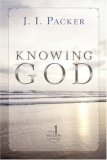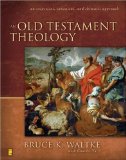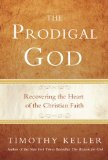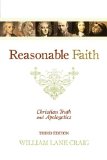Whereas last year I had a hard time naming 5 good books I read in 2009, I’m having trouble keeping it to 5 for 2010. Actually, I forgot The Cross and Christian Ministry and The Prodigal God last year, so the list would have been pretty good. I started making my list earlier this year to avoid the same mistake. As with previous years, this list is comprised of books I read for the first time this year, not that were published this year. In fact, I don’t think I even read 5 books published in 2010. Unlike previous years, I’m giving an order to this, in order of ascending appreciation. Interestingly, despite the fact I reviewed 10 books this year for publishers, none of the books on this list were from them.
This list does not include revised editions of books I’ve previously read, otherwise Jesus and the Gospels: 2nd Edition would have made the cut.
5. Conforming to Christ in Community, by Jim Samra
I first mentioned this book back in June, and as I’ve thought back on the books I read this year, this one stood out as a strong one because of it’s usefulness, despite it’s dissertationy feel (because… um… it’s a dissertation). I’m currently reading Samra’s scaled down book on the value of the church, which is also quite good, but my guess is that I’ll revisit this one when I want to refresh myself on Paul’s teaching on the church and its importance for the maturation of Christians.
4. The Pentateuch as Narrative, by John Sailhamer
I mentioned this book a couple months back as my new “curveball” book for the Pentateuch. When I need a slightly different take, or someone to help me make connections within the Pentateuch that I easily miss, John Sailhamer is my guy. It’s hard to think of the first five books of the Bible as disjointed and boring after reading Sailhamer.
3. Jesus in a New Age, Dalai Lama World, by M. Tsering
The world of Tibetan Buddhism is a fascinating one, and its worldview couldn’t be much more different from the biblical one. This book is a wonderful introduction to this worldview, and offers many suggestions how to share Christ with those who hold it. This book is so well done that I think anyone interested in missions and cross-cultural evangelism would do well to read it because many of the principles are universal.
2. A Call to Spiritual Reformation, by D A Carson
I read a lot of Carson this year, so much so that I could have done a top 5 just with Carson books and they’d all be very good. I opted not to include more than one Carson book. The God Who Is There is outstanding, I’ve benefitted greatly from the two volumes of For the Love of God during my morning quiet times. I could add Collected Writings on Scripture and make it 5 (Scandalous wouldn’t quite make the cut). But when I needed a boost in my prayer life, I turned to this book and it delivered. So I chose this one out of the many because of the impact it had on me personally. Using the prayers in Paul as a guide to our own prayers seems like such an obvious approach, I wonder why I had never thought of it. I’ve read a lot of Carson, not just this year but in previous years, but this is my favorite and I can’t recommend it highly enough.
1. Salvation Belongs to Our God, by Christopher J H Wright
Despite also reading The Mission of God, which is Wright’s massive and more detailed book demonstrating the missional character of God, this shorter book stands as my favorite of the year. As I mentioned in my review, I ended up taking 33 pages of notes on it! It’s not that I agree with everything in this book, in fact I’d say I agreed more with the previous book on this list than this one. But Wright captivated me with his ability to place things in the context of the biblical story in a compelling manner. This is biblical theology done well.
Looking Ahead
My reading load for 2011 will be much smaller due to some major constraints on my personal time. However, I am currently reading John Jefferson Davis’ Worship and the Reality of God, Jim Samra’s The Gift of Church and will soon be starting Jim Hamilton’s God’s Glory in Salvation through Judgment. On top of that, I plan on reading David Platt’s Radical and John Piper’s Think, and Ron Jaworski’s The Games that Changed the Game. The first three will all be reviewed here; the other 3 may get a mention. I’d be interested to know what books BBG readers enjoyed reading this year, so feel free to leave a comment.








 Paul, the Spirit and the People of God
Paul, the Spirit and the People of God From Jerusalem to Irian Jaya
From Jerusalem to Irian Jaya









